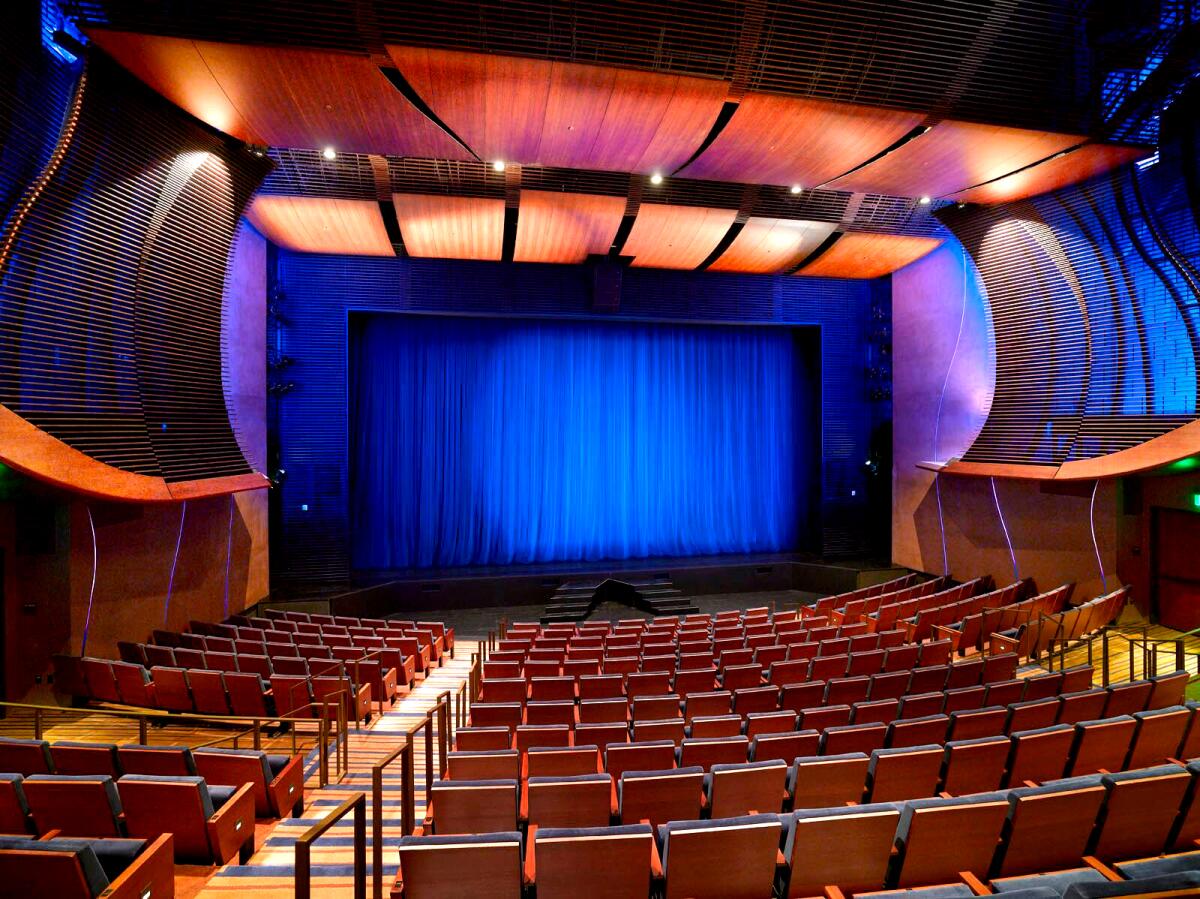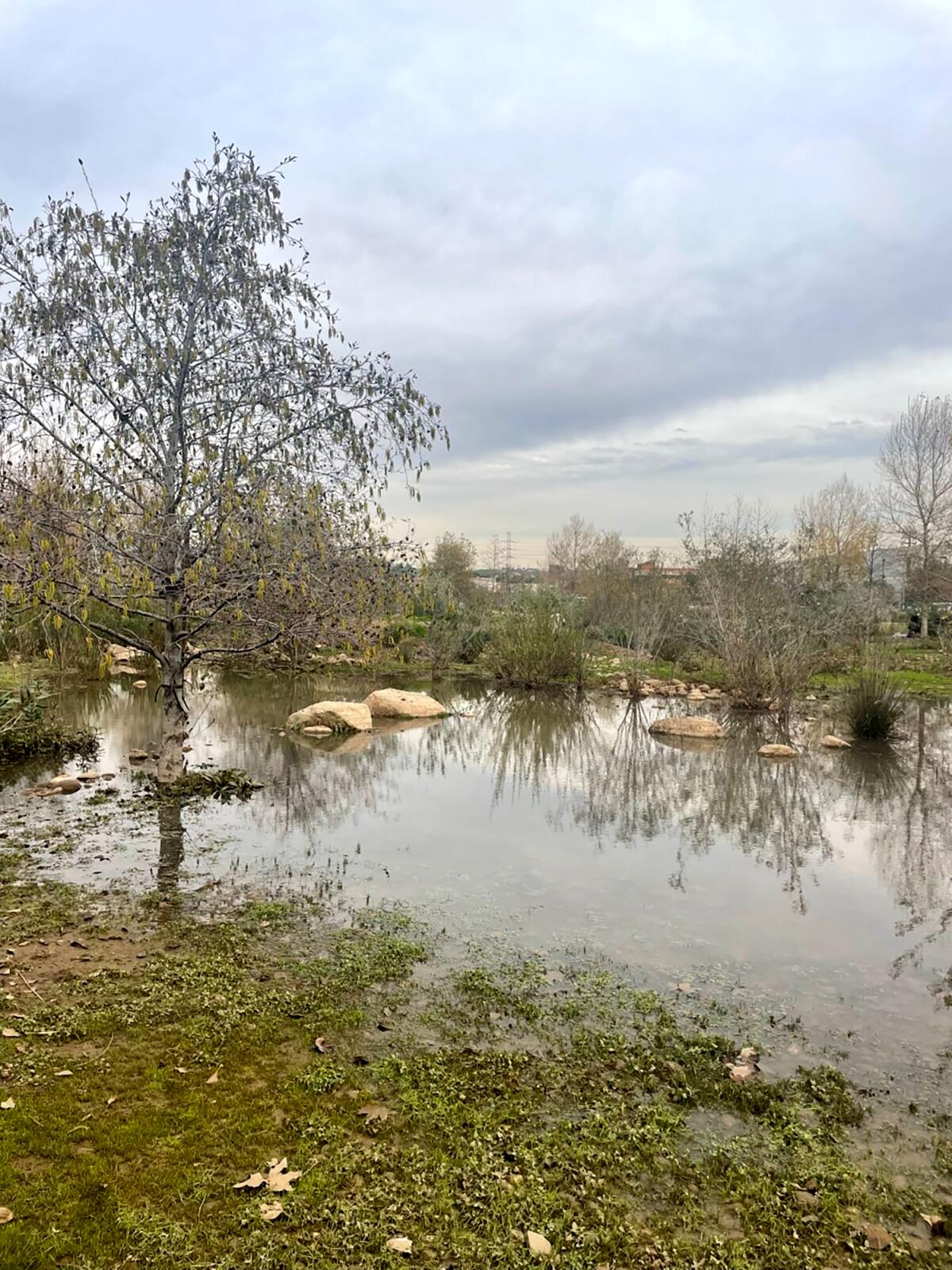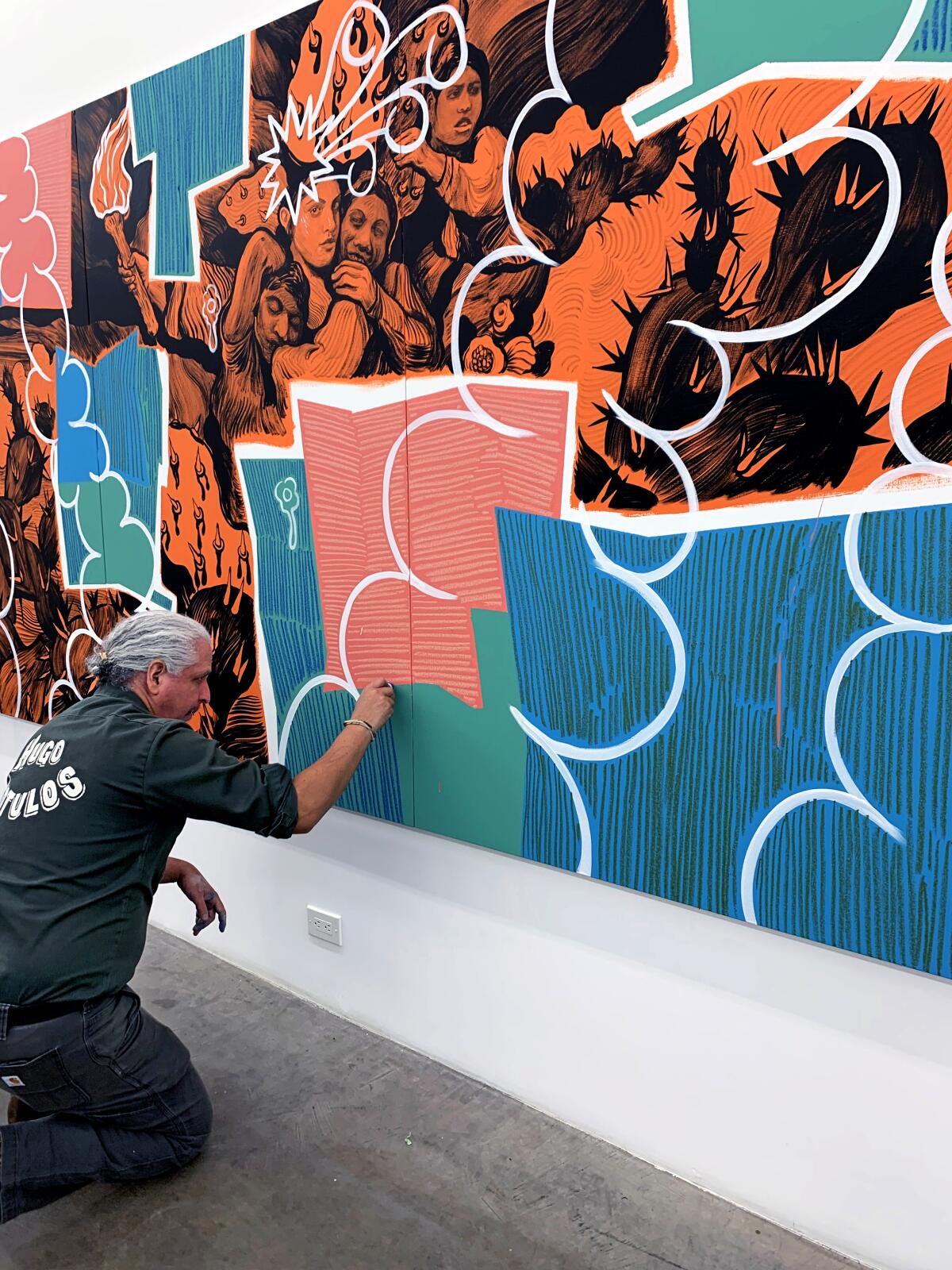As storms postpone or cancel arts events across Los Angeles, organizations remain resilient

- Share via
The entrance to the Bram Goldsmith Theater at the Wallis Annenberg Center for the Performing Arts is typically filled with patrons grabbing show programs on their way to their seats. But on Tuesday, following almost a week of torrential rain in Southern California, the front lobby was drenched and filled with restoration crew members. The orchestra section was soaked, and towels were tucked under door frames as staff navigated the venue with caution to avoid a slip and fall. Meanwhile, the production of “Wuthering Heights” persisted with a tech rehearsal on stage.
Two days later, the Wallis announced that Emma Rice’s adaptation of the Emily Brontë classic was canceled. The show was initially scheduled to open Wednesday and run until Jan. 22. It was first postponed by a day then halted altogether.
“We feel out of an abundance of caution that it is really just best for the safety of our patrons,” said Michelle Wiesel, the Wallis’ general manager.
The Wallis isn’t the only arts center in the area to be affected by what the National Weather Service called the “most impressive” storm since 2005. Clockshop and the Huntington have had to alter their programming to prioritize the safety of patrons. While unfortunate, those behind the establishments see the unexpected changes as a show of resilience as they move forward.
Wiesel said the Wallis was fortunate to have a mitigation and restoration company at the venue within hours of learning about flooding in the building.
The almost two-week production brought talent from the United Kingdom to Los Angeles. Wiesel said the team was understanding and supportive of the cancellation for the sake of safety. As for possibly rescheduling the show, “things are in discussion,” she said.

Although the rain canceled “Wuthering Heights,” for other entities it merely postponed plans. Clockshop, a multidisciplinary arts organization in Los Angeles, planned to present the installation of Sarah Rosalena’s public artwork “For Submersion.” Ironically, the piece is meant to reimagine the earth beneath L.A. State Historic Park and the history of the Los Angeles River floodplain. The kicker: It required rain.
“We were wishing for the rain, but it came too much too soon,” Clockshop executive director Sue Bell Yank said.
Clockshop planned the opening reception to be Sunday, but the amount of rain on the site made it impossible for them to install the public piece.
“The piece itself actually had been meant to interact with the rainwater, that is the vision of the artist,” Yank said. “But, of course, we needed dry weather in order to do the initial installation.”
Now Clockshop is postponing the opening reception until Jan. 29 to allow time for the basin to drain. In the meantime, those at Clockshop are able to see the humor in the rain postponing an installation about flooding.
Yank said unexpected events like this tend to happen while working in public art.
“Most arts organizations are fairly small and scrappy and plan really well in advance for these things,” she said. “It can be incredibly disruptive and difficult when those plans have to be changed.”
The organization LA Más had planned to take a camping trip that was supposed to end with a visit to Rosalena’s installation. Now the camping trip and the opening have been interrupted.
Outdoor events and institutions, especially, had to take precautions with the storm. Huntington Library, Art Museum and Botanical Gardens closed its gardens on Wednesday due to the excessive rain.
“While we love having rain for our many acres of gardens, it’s more challenging when it comes bunched up in short periods,” said Randy Shulman, the Huntington’s vice president for advancement and external relations.
While the gardens are closed, Huntington’s exhibitions are still open to the public.
“The Huntington is always concerned about the safety of the visitors that walk the grounds and its own staff,” he said. “The first priority is to make sure that we evaluate as much as we can.”
After evaluating the impact of the storm, the Huntington found that it lost five to seven trees. According to Shulman, the number is relatively low compared with the loss of hundreds of trees in 2011 following a major windstorm.

Luis De Jesus Los Angeles, which planned to hold an opening reception for Mimi Smith and Hugo Crosthwaite’s solo exhibitions, also decided to reschedule the Saturday event for the safety of employees and patrons.
Luis De Jesus, partner and director of the gallery, said he reached out to people who were expected to partake in the opening before making the decision to postpone, and they all agreed it would be best to reschedule for Jan. 21.
“We are expecting quite a few people from out of town to come join us for the opening, so because of the impending storm that’s supposed to move in later [on Friday] and through the weekend, we felt it makes sense to postpone it,” he said.
De Jesus noted a few leaks in the space, but no major damages. While there may not be an opening, the gallery will still have the new exhibitions on display, as scheduled, for those who are open to braving the weather.
“I feel really good about this decision that we’ve made to postpone the opening, and I feel that hopefully, we’ll have an even better turnout,” he said.
While the cancellations and postponements of arts happenings across Los Angeles were not part of the plan for organizations and institutions, many note that the pandemic made these decisions a bit smoother because community well-being was already at the forefront.
“We all learned from the pandemic the incredible resilience of the public,” Shulman said. “We find people to be much more patient and understanding of certain situations than ever before.”
More to Read
The biggest entertainment stories
Get our big stories about Hollywood, film, television, music, arts, culture and more right in your inbox as soon as they publish.
You may occasionally receive promotional content from the Los Angeles Times.










